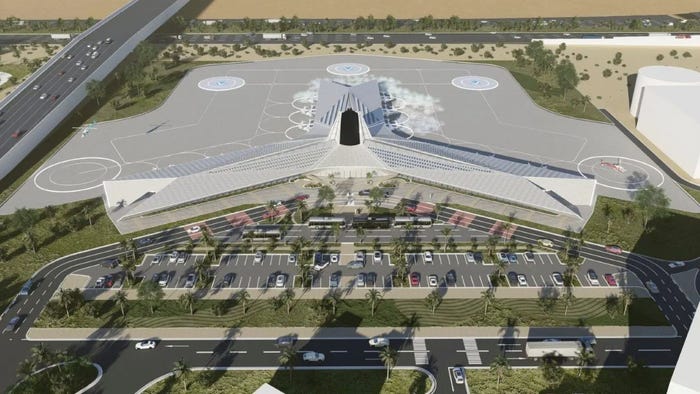Bringing AI-Powered Wearables to Bed With YouBringing AI-Powered Wearables to Bed With You
AI technology monitors biological signals while you sleep to offer insight into your well-being

Imagine a future where your bed isn't just where you rest but where health monitoring takes center stage. Thanks to advancements in AI, that future is already here.
With humans spending nearly a third of our lives in bed, tracking nocturnal sleep data and detailed patterns provides valuable health data. This nightly information offers critical insights into overall well-being, from identifying sleep stages to monitoring disturbances like snoring or interruptions. It is one of the largest sources of personal health data available today. While you sleep, you can deploy powerful AI-powered technology to work quietly while you rest, analyzing your biological signals—like coughing, breathing patterns, and sleep disturbances—to offer a new window into your well-being.
Far from science fiction, the seamless integration of AI into sleep tracking is transforming bedrooms into proactive health care hubs, empowering individuals and even public health systems with insights that could change how we detect and prevent illness.
AI-Powered Sleep Tracking: A Game Changer in Health Care
Sleep analysis apps, which are much more accessible and affordable than a sleep lab or expensive wearables, can analyze key biological signals such as coughing, breathing irregularities, and even sleep disturbances. These insights go beyond simply improving sleep quality; they offer early warnings for potential illnesses.
This technology represents a significant shift toward proactive health care. As AI algorithms silently work in the background, they can detect abnormal health patterns, such as respiratory illness, before symptoms become noticeable during waking hours.
By catching these signals while people sleep, individuals can take action to address potential health concerns before they worsen. Beyond individual health, the data collected by AI-powered sleep analysis apps can also contribute to a broader public health initiative. Aggregated and anonymized sleep data can form a worldwide sensor network, allowing for real-time analysis of global health trends and giving us new insights into how respiratory illness spreads. While health care systems often rely on traditional methods like hospital admissions and patient-reported symptoms to track disease outbreaks, AI can detect these trends much earlier.
For public health authorities, AI-powered health monitoring could help forecast outbreaks, enabling more efficient allocation of resources, such as increased medical personnel or supplies in regions experiencing heightened coughing activity. By giving officials a head start on potential outbreaks, AI can enhance preparedness, reduce the strain on health care systems, and ultimately save lives.
The Power of Predictive AI in Illness Detection
One of the most exciting aspects of AI's role in health monitoring is its predictive power. AI's ability to detect heightened coughing levels in their local area provides an invaluable early warning system for immunocompromised individuals at greater risk of severe illness. With this data, they can make proactive choices like avoiding crowded spaces, ensuring better protection from illness and helping them navigate high-risk periods more confidently.
Consider a scenario during flu season: AI-based health monitoring could help workplaces implement better illness prevention strategies by providing aggregated data on elevated coughing trends within cities. By identifying when respiratory illness outbreaks are on the rise, businesses can encourage proactive measures such as temporary remote work during peak illness periods to reduce the risk of exposure and promote a healthier work environment. Employees who are healthy are more productive and take less time off work.
It's incredible how AI can detect these signs of illness passively, offering a more reliable and fast approach to health monitoring.
Toward a Future of Proactive Health Care
As AI continues to evolve, its integration into sleep tracking will unlock even more possibilities for both individual and public health. The combination of AI's predictive capabilities and global health monitoring potential will create a future where health care is not just reactive but also proactive.
By bringing AI into the bedroom, we are taking a significant step toward more comprehensive health monitoring that happens seamlessly while we sleep. The question now is: How will we use this newfound knowledge to take control of our health and shape a healthier future for all?
This article first appeared in IoT World Today's sister publication AI Business.
About the Author
You May Also Like






